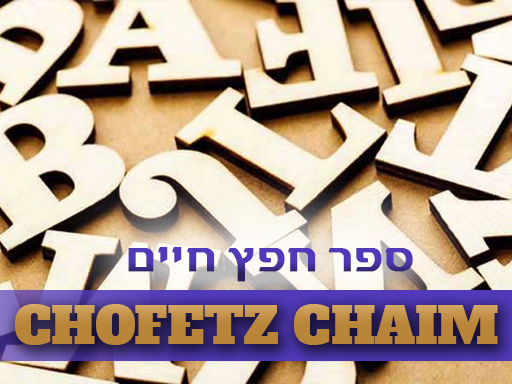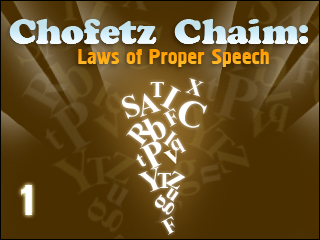Positivity: The Key to Proper Speech
Posted onIn this Torah shiur (class) on Sefer Chofetz Chaim and the laws of proper speech, Rabbi Beinish Ginsburg completes the introduction of the Chofetz Chaim to his work, and summarizes the main points to take out from this important chapter.



